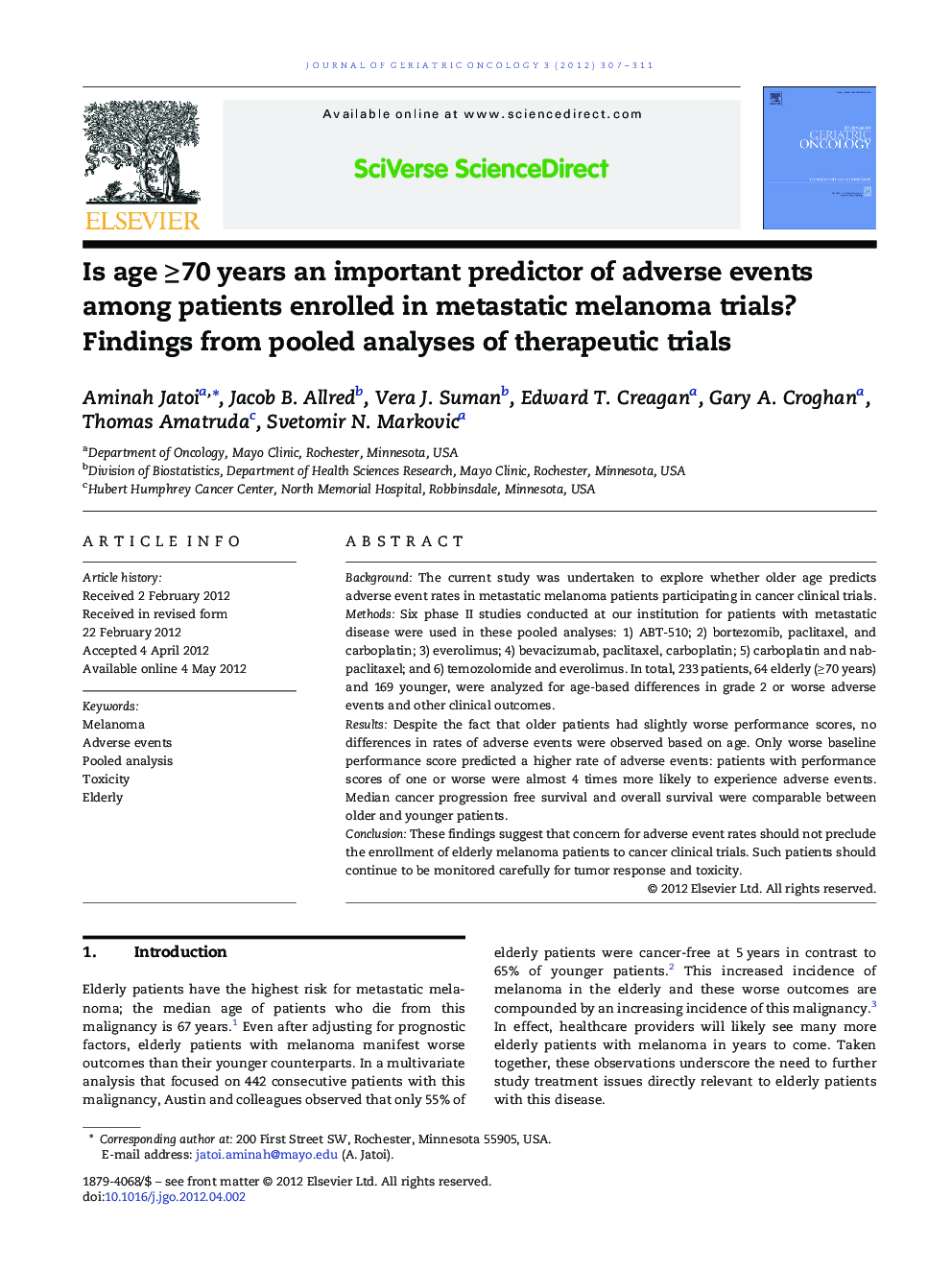| Article ID | Journal | Published Year | Pages | File Type |
|---|---|---|---|---|
| 1912467 | Journal of Geriatric Oncology | 2012 | 5 Pages |
BackgroundThe current study was undertaken to explore whether older age predicts adverse event rates in metastatic melanoma patients participating in cancer clinical trials.MethodsSix phase II studies conducted at our institution for patients with metastatic disease were used in these pooled analyses: 1) ABT-510; 2) bortezomib, paclitaxel, and carboplatin; 3) everolimus; 4) bevacizumab, paclitaxel, carboplatin; 5) carboplatin and nab-paclitaxel; and 6) temozolomide and everolimus. In total, 233 patients, 64 elderly (≥ 70 years) and 169 younger, were analyzed for age-based differences in grade 2 or worse adverse events and other clinical outcomes.ResultsDespite the fact that older patients had slightly worse performance scores, no differences in rates of adverse events were observed based on age. Only worse baseline performance score predicted a higher rate of adverse events: patients with performance scores of one or worse were almost 4 times more likely to experience adverse events. Median cancer progression free survival and overall survival were comparable between older and younger patients.ConclusionThese findings suggest that concern for adverse event rates should not preclude the enrollment of elderly melanoma patients to cancer clinical trials. Such patients should continue to be monitored carefully for tumor response and toxicity.
